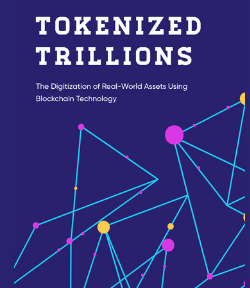
From Petrodollar to Bitcoin: Decline of U.S. Dollar Dominance & A New Era in Global Finance
The Decline of U.S. Dollar Dominance: A New Era in Global Finance.
For decades, the U.S. dollar has held a position of unparalleled dominance in international trade and finance. The petrodollar system, established in the 1970s, cemented this status, creating a world where oil and other commodities were traded exclusively in dollars. However, recent geopolitical shifts and the rise of alternative currencies signal a potential end to this era. This article explores the decline of the U.S. dollar’s dominance, the impact of de-dollarization on the global economy, and the rise of Bitcoin as a potential new global reserve currency.

The Rise and Fall of the Petrodollar
The petrodollar system was born in 1974, three years after the collapse of the Bretton Woods Agreement, which had pegged major currencies to the U.S. dollar, itself convertible to gold. In a masterstroke of diplomacy, then-Secretary of State Henry Kissinger secured an agreement with Saudi Arabia, ensuring that oil would be traded exclusively in dollars. This arrangement was mutually beneficial: the U.S. guaranteed military protection for the Saudi kingdom, while Saudi Arabia, and eventually all OPEC countries, agreed to price their oil in dollars and invest their surpluses in U.S. debt.
This system reinforced the dollar’s position as the world’s primary reserve currency. Countries needed dollars to purchase oil, ensuring constant demand. However, this setup also made the global economy heavily reliant on the U.S. dollar, tying international financial stability to the fortunes of the American economy.
The Shift Towards De-dollarization
In recent years, several factors have catalyzed a shift away from dollar dominance. Geopolitical tensions, particularly between the U.S. and countries like China and Russia, have prompted these nations to seek alternatives to reduce their exposure to U.S. financial influence. For instance, in 2023, Saudi Arabia’s Finance Minister Mohammed Al-Jadaan announced at the World Economic Forum that the kingdom was open to trading in other currencies, including the Chinese yuan.
This move was indicative of a broader trend. Countries such as Russia and China have been actively promoting their currencies in international trade. Russia, facing Western sanctions, has increasingly used the yuan for its oil exports. Similarly, China’s Belt and Road Initiative encourages the use of the yuan in trade, further challenging the dollar’s dominance.
Moreover, the rise of cryptocurrencies like Bitcoin offers a decentralized alternative to traditional currencies. Bitcoin’s appeal lies in its borderless nature and resistance to government control, making it an attractive option for countries and individuals looking to bypass the dollar-centric financial system.
Historical Precedents: The Fall of Previous Global Reserve Currencies
The decline of the U.S. dollar as the global reserve currency would not be unprecedented. History is replete with examples of dominant currencies losing their status. The Portuguese real, the Spanish real, the Dutch florin, and the British pound all enjoyed periods of dominance before being supplanted. Each of these transitions was driven by a combination of economic, political, and technological changes.
The British pound, for example, was the world’s reserve currency until the mid-20th century. The aftermath of World War II and the economic rise of the United States facilitated the dollar’s ascension. Similarly, today’s shifts in global economic power, technological advancements, and geopolitical realignments are creating conditions ripe for another transition.
The Impact of De-dollarization
The move away from the dollar will have profound implications for the global economy. One immediate consequence could be increased volatility in financial markets. As countries diversify their reserves away from dollars, demand for U.S. Treasuries could decline, leading to higher borrowing costs for the U.S. government. This could exacerbate fiscal challenges and potentially lead to a weaker U.S. economy.
For the global economy, de-dollarization could mean a more fragmented financial system. A multipolar currency world may emerge, where the dollar, euro, yuan, and possibly cryptocurrencies share the role of global reserve currencies. This could lead to increased transaction costs and complexity in international trade and finance.
The Rise of Bitcoin as a Global Reserve Currency
Bitcoin presents a compelling alternative to traditional fiat currencies. Its decentralized architecture ensures that it is not subject to the whims of any single government. This makes Bitcoin an attractive option for countries looking to reduce their dependency on the U.S. dollar.
Bitcoin’s finite supply, capped at 21 million coins, provides a hedge against inflation, a stark contrast to fiat currencies, which can be printed at will by central banks. As more institutional investors and countries recognize Bitcoin’s potential as a store of value and medium of exchange, its adoption is likely to increase. The trading of Bitcoin on digital global platforms such as PrimeXBT where crypto traders can trade perpetual contracts, CFDs & forex, or copy trade has also been on the rise.

Protecting Against Fiat Currency Debasement
As the global financial landscape evolves, individuals and investors need strategies to protect their wealth. Diversification is key. Allocating assets to a mix of traditional currencies, cryptocurrencies like Bitcoin, and other assets such as gold can mitigate the risks associated with the debasement of any single currency.
Additionally, investing in decentralized finance (DeFi) platforms offers exposure to innovative financial products that operate outside traditional banking systems. These platforms provide opportunities for earning interest, borrowing, and lending in a decentralized manner, further insulating investors from the risks associated with fiat currency debasement.
The Path Ahead
The decline of the U.S. dollar’s dominance is not an overnight phenomenon but a gradual process influenced by geopolitical, economic, and technological changes. As countries seek alternatives to the dollar, the global financial system is poised for significant transformation. The rise of Bitcoin and other cryptocurrencies represents a potential shift towards a more decentralized and equitable financial system.
While the exact trajectory of this transition remains uncertain, one thing is clear: the era of unquestioned dollar dominance is waning. In this new landscape, adaptability, diversification, and a keen understanding of emerging financial technologies will be crucial for navigating the challenges and opportunities that lie ahead.
In conclusion, the decline of the U.S. dollar’s dominance and the rise of alternative currencies like Bitcoin herald a new era in global finance. This shift, driven by geopolitical realignments and technological advancements, will reshape the global economic landscape, creating both challenges and opportunities for countries, businesses, and individuals. Embracing these changes and adopting proactive strategies will be essential for thriving in this evolving financial ecosystem.






